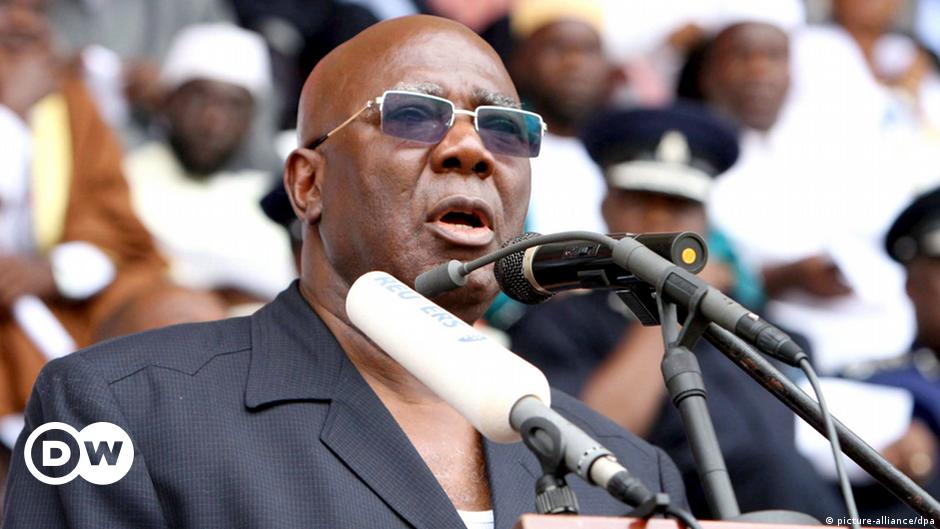Owing to current democratic backsliding, debate about who is father of democracy in Sierra Leone filters through the public. A popular argument holds that President Julius Maada Bio is the father of democracy because of role played in the 1996 multi-party elections.
In the unending debate, Ernest Koroma’s name also comes up for his development initiatives between 2007 and 2018. One would also say what about Tejan Kabba under whose leadership Sierra Leone’s decade-long civil war comes to an end, and set the pace for prosperity.
Captain Valentine Strasser who led the National Provisional Ruling Council (NPRC) in the 1990s, according to the arguments, deserve the crown as he builds institutions for Sierra Leone’s democratic transformation.
However, the editorial analyses, in brief, the role played by each President to the enhancement of democracy in Sierra Leone.
President Julius Maada Bio came under the spotlight in 1992 when he and other soldiers kicked then President Joseph Saidu Momoh out of power and installed a new government called the National Provisional Ruling Council (NPRC).
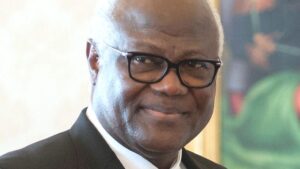
Initially, Bio was Resident Minister, South and later Vice Chairman of NPRC before he became Chairman and Head of State following the overthrow of Valentine Strasser, a coup justified by strasser’s seeming refusal to transfer power to civilian rule.
Within three months, that is March, 1996, the first multi-party elections, after decades of one-party rule, was held under Bio’s watch. He however took an exit after handing over power to his successor, President Ahmed Tejan Kabba, one of Sierra Leone’s seasoned diplomat.
Bio’s overthrow and peaceful transfer of power transformed him overnight into a local and global icon of democracy as it put an end to decades of one-party rule in Sierra Leone.
With a new government in place, Bio left Sierra Leone for the United States and later UK from where he came to contest again the 2018 elections which he eventually won.
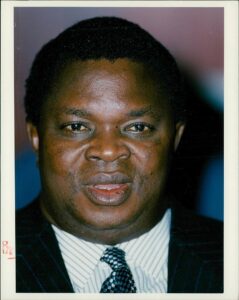
Late Joseph Saidu Momoh, former President of Sierra Leone
But, the side effects of Bio’s five-year rule appears to have overshadowed his good works in 1996 for turning blind eye to widespread allegations of mass killings and serious human rights abuse characterised by illegal and indiscriminate arrest and detention, suppression of free speech, tight control of every aspect of man’s life, creation of a police state and terror tactics.
The abuses alarm the international community and Sierra Leoneans wait and hope to remove Bio through the ballot box and not the gun.
In June 24, 2023, the people of Sierra Leone voted massively to take Bio out of State House, but his refusal to concede defeat or allow a run off also went a long way in destroying his record.
However, it is never too late for Bio to take back his glory as he only needs to accept the election investigation and implement the recommendations.
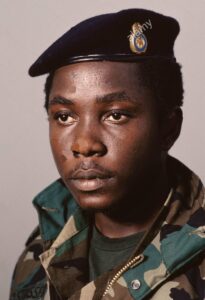
On the other hand, Bio’s immediate predecessor, former President Ernest Bai Koroma took over power in 2007 from President Ahmed Tejan Kabba at a time multi-party democracy was taking roots and bearing branches, but was a bit shaky owing to the storm at that time.
Absence of good roads, energy, health facilities, education, salaries and wages and abject poverty and under development weakened the pillars of the country’s fledgling democracy.
No sound democracy can thrive in a country where livelihood is at stake.
Without sound livelihood, there is no peace and peace and democracy are two sides of the coin.
The ostensible threats to democracy was turned into glaring opportunities by the policies of Agenda for Change and that of Prosperity underpinned by the prioritisation of energy supply, sound infrastructure, Health, agriculture and education.
It was under Koroma’s supervision that Freetown once dubbed the darkest city saw bright light in one night and was also cascaded to other communities in the provinces.
With support from the European Union, the country saw facelift in terms of roads, bridges and other buildings.
The Freetown-Kambia, the Masiaka-Bo, Bo-Liberia highways and other major roads were fixed within a year.
Mabang, Magbele and Muala-Ferry bridges were also constructed with support from the European body. To improve the country’s health situation and cut down the infant and maternal mortality rates for which Sierra Leone was well-known, a Free Health Care policy was launched in April, 2013 covering under-five Children, pregnant women and lactating mothers.
Agriculture was revamped and education strongly supported by government through the construction of schools, timely provision of subvention, payment of fees for public exams: West African Senior School Certificate Examination, Basic Education Certificate Examination and the National Primary School Examination and the list continues.
Thousands, if not millions of Sierra Leoneans, were put to work by creating a conducive atmosphere for investment seen in the arrival of African Minerals Limited, London Mining Company, SUCFIM, Timis Corporation among others.
The country was peaceful and united under one government as every one’s job was secure. The rule of law was in full swing without discrimination on the basis of tribe, region and political affiliation. With an enhanced provision of social services, No gainsaying that democracy was strong.
However, Koroma left the political stage in 2018 against the wish of many Sierra Leoneans but knowing when to leave is the art of being a good guest.
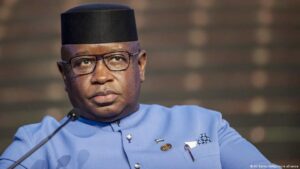
Koroma’s immediate predecessor, Ahmed Tejan Kabba was also credited father of democracy for his role in ending a war that claimed the lives of over 100, 000 Sierra Leoneans, displaced millions and left thousands limbless.
The symbolic burning of arms and ammunition in March, 2002 in Lungi town, Northern Sierra Leone was a sign that peace had returned to the country.
Apart from ending the war, Kabba also vigorously pursued a policy of capacity building and institutional reforms and creation of new ones: the National Social Security and Insurance Trust was one of them. Kabba would have been another jobs President had his ministers worked with him well.
Like Koroma, Kabba also left after successful two terms and lived as a statesman till his death few years later. Captain Valentine Strasser also played his part in the democratisation of Sierra Leone following the 1992 coup, a period in which he sat as NPRC Chairman and Head of State.
In his few years of political existence, Strasser set up several institutions of accountability and democracy as a way of preparing Sierra Leone for the transition from one-party to multi-party rule.
It was under Strasser’s rule that the National Commission for Democracy and Human rights was set up and survived to this day although it had been divided into two. Instead of NCDHR, there are the National Commission for Democracy and the Human Rights Commission.
Those who witnessed history firsthand recounted that Strasser was laying the building blocks for the 1996 elections when a putsch swept him away. The former military ruler was loaded in a helicopter and flown into neighbouring Guinea from where he landed in Europe. Little is known about him as the ex-junta leader now sits on a wheelchair after a leg amputation owing to cancer.
But, many Sierra Leoneans often argue that Joseph Saidu Momoh is the foundation of the democracy Sierra Leoneans enjoy today.
He took over power in 1985 from President Siaka Stevens under the one-party system which was accepted at that time in the name of peace and national cohesion.
Momoh reformed the legal and health systems evidenced by the construction of Legal Council and the College of Medicine and Allied Health Sciences.
He also put together a team led by Dr Peter Tucker that wrote the 1991 Constitution of Sierra Leone which introduced multi-party democracy.
To this date, the constitution stood as a testament or symbol of democracy despite its weak links, and the articles lands us into the lingering debate about who is father of democracy for Sierra Leone?


